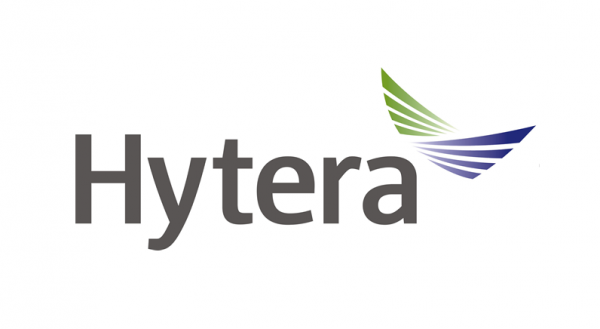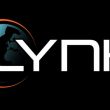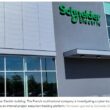Bankruptcy court sets schedule for sale of Hytera U.S. divisions, as Motorola Solutions seeks dismissal
A bankruptcy court is now scheduled to consider approving the Chapter 11 sale of Hytera’s U.S. divisions on Aug. 27, after attorneys for Motorola Solutions and Hytera exchanged verbal barbs about the other company’s strategic motivations in a series of recent legal filings.
Potential bidders for the Hytera U.S. divisions—Hytera America, or “Hytera East,” and Hytera Communications America (West), or “Hytera West”—are required to declare their intentions by Aug. 14, according to a notice released by the U.S. Bankruptcy Court for the Central District of California.
If no bidders emerge, the Hytera U.S. division would be sold to Hytera US, a new affiliate of China-based Hytera Communications that has committed to paying at least $7.897 million for Hytera’s U.S. assets. If at least one new qualified bidder is identified, the bankruptcy court would conduct an auction on Aug. 18 to determine the new owner of the Hytera U.S. divisions.
No matter when the owner of the Hytera U.S. divisions is determined, the bankruptcy court is not scheduled to consider approval of the sale until Aug. 27, according to the court notice. This Aug. 27 date is significant, because it will allow the court to consider a request by Motorola Solutions to dismiss the bankruptcy entirely on Aug. 20.
Hytera had proposed a schedule that called for the bankruptcy sale to be finalized hours before the Motorola Solutions dismissal request was set to be heard. Motorola Solutions described as Hytera’s attempt to “ram through a ‘free and clear’ asset sale before the Court can hear the entire record on the issues raised in Motorola’s motion to dismiss …”
In contrast, Hytera attorneys have characterized Motorola Solutions’ motion to dismiss as part of “Motorola’s overall strategy to eliminate a business competitor at all costs,” noting that “Motorola is more interested in destroying the Debtors’ distribution network and solidifying its monopolist position in the U.S. market than it is in maximizing the value of the Debtors’ estates,” according to a Hytera filing submitted to the bankruptcy court last Friday.
Not surprisingly, Hytera believes the bankruptcy court should deny the Motorola Solutions motion to dismiss.
“The Debtors [Hytera East and Hytera West] believe the Motion to Dismiss should be denied in its entirety, and the sale of the Debtors’ assets approved to the highest or otherwise best bidder,” the Hytera filing states. “Neither the bidding procedures nor the sale will prejudice Motorola’s intellectual property rights. The proposed sale order makes it abundantly clear that the ‘free and clear’ relief will not affect Motorola’s intellectual property rights …”
Intellectual property rights are central to the lengthy dispute between Motorola Solutions and Hytera.
In February, a U.S. federal-court jury ruled that Hytera would have to pay Motorola Solutions $764.6 million in damages for improper use of trade secrets and copyrighted software in a significant amount of Hytera’s DMR product portfolio. This pending financial penalty was the reason that Hytera East and Hytera West filed for Chapter 11 bankruptcy protection on May 26, according to Hytera legal filings.
Absent the massive federal-court award to Motorola Solutions, the Hytera U.S. divisions would remain viable businesses—a fact acknowledged in the Motorola Solution motion for dismissal. For the year ending on Dec. 31, 2019, the two primary Hytera U.S. divisions generated combined revenues of $42.9 million, although the net operating income resulted in a loss of about $100,000, according to the Huang declaration.
While the bankruptcy-sale schedule has been set in California, a federal-court judge in Chicago has yet to rule on a Motorola Solutions permanent-injunction request that would block Hytera from selling any of the contested DMR products worldwide. Motorola Solutions’ attorneys have argued that “no legitimate buyer will engage until
the scope of injunctive relief is determined in the Illinois Trade Secret Case.”
With this in mind, Motorola Solutions attorneys claim that the bankruptcy sale is part of Hytera’s plan to “plan is to have an insider sale approved to create a judgment-proof ‘new’ ‘Hytera US’ affiliate who will continue making illegal, infringing sales with impunity—presumably arguing that Motorola must file new lawsuits against that ‘new’ entity and its ‘new’ products, all to further delay or completely avoid paying Motorola a single dollar of the judgment entered by the U.S. District Court for the Northern District of Illinois.
“That plan—to use the bankruptcy courts to evade Motorola’s judgment and launder Hytera’s U.S. business before continuing with a newly-fashioned different-in-name-only successor—is ‘classic’ bad faith.”
During the federal-court trial that began last November, Hytera attorneys acknowledged that three former Motorola (the company had not yet changed its name to Motorola Solutions at the time) employees—Samuel Chia, Y.T. Kok and G.S. Kok—accessed more than 7,000 Motorola documents prior to each of them leaving and joining Hytera in 2008. However, Hytera attorneys described the three engineers as “bad apples” who did not share with anyone else at Hytera that the DMR trade secrets and software were taken from Motorola.
Hytera attorneys have asked for a new trial and argue that the award to Motorola should be reduced significantly, if the decision is not reversed. In contrast, Motorola Solutions asks that the financial award that China-based Hytera should pay should be increased by including the profits that Hytera has realized during the time since the trial started, interest and attorney fees.
Hytera also has argued that an injunction issued by a U.S. federal court only should apply within the U.S., which would mean Hytera could sell the DMR products in other countries. But Motorola Solutions asserts that language in the Defend Trade Secrets Act (DTSA) supports granting worldwide injunction in this case, because Hytera engaged in an “act in furtherance of the offense” in the U.S. through its participation in U.S. trade shows.

















